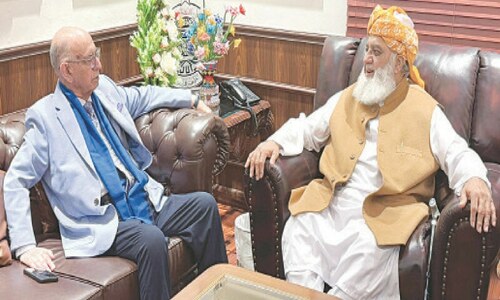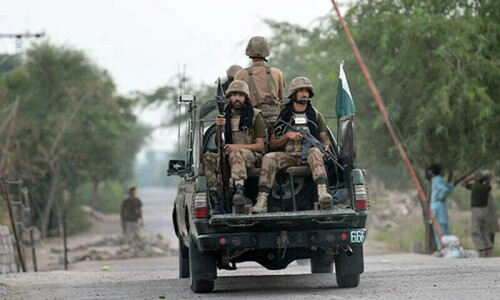ISLAMABAD: In its annual review of the state of democracy in Pakistan, the Pakistan Institute of Legislative Development and Transparency (Pildat) outlined critical challenges to the country’s democratic health and called for a renewed commitment to democratic principles by all institutions and stakeholders.
The report, Quality of Democracy in Pakistan 2024, notes that even as democracy faced crises around the world, it also remained under significant strain in Pakistan.
“By an all too familiar scenario, another alliance of politicians with the all-powerful establishment came about, either under extraordinary pressure to address the most serious economic crisis of its history or because of the politicians’ eagerness for crumbs of power.”
Lists election irregularities, govt’s aggressive legislation, media & internet curbs among main challenges of 2024
Highlighting key issues which impacted democracy in Pakistan in 2024, the report singles out six to seven areas of concern: the federal government’s controversial legislative agenda, the 12th general elections and the Election Commission of Pakistan’s failures, political parties’ role in unravelling of democracy, the arrest and court martial of a former head of the country’s premier spy agency, the banning of the Pashtun Tahaffuz Movement (PTM), and curbs on media and internet freedom.
Election issues
The 12th general election, held in February 2024 after a considerable delay, was a largely flawed exercise that served to fracture the popular mandate and to provide citizens only with a modicum of political and electoral choice.
The new political villain on the horizon after the ouster of its government in April 2022, the PTI bore the brunt of heavy pre-poll and post-poll rigging against it, systematically carried out to fracture its apparent public support.
Against these odds, candidates supported by the PTI emerged as the party with the most number of seats (93) in the National Assembly, while the PML-N only won 78 and the PPP 54. However, the ECP denied PTI at least 77 reserved seats and distributed these among other political parties in the assemblies.
“The ECP has arguably been the biggest loser in the rapidly dwindling democracy, democratic rights and processes in Pakistan…[it] sacrificed its independence either on the altar of personal and political opportunism or acute pressure or both and paved the way for yet another manipulated general election spiralling the country into further democratic chaos,” the report observed.
When the PTI got relief through a majority judgement by the Supreme Court arguing that election authorities denying the party recognition infringed upon electorate’s rights, the ECP and parliament dragged their feet on its implementation while the then CJP spent considerable time in poking holes in legality of the orders by the majority bench headed by Justice Mansoor Ali Shah.
Aggressive legislation
Apparently to safeguard its razor-thin majority in the parliament, the federal government embarked on a mission to restructure higher judiciary.
“The 26th Amendment, ramrodded through parliament by very unsavoury means, amended, substituted, or added 25 articles and one schedule of the Constitution out of which only nine articles dealt with subjects other than the judiciary,” said the report.
The thrust of the amendment included changes in the appointment procedure of the chief justice of Pakistan through a 12-member parliamentary committee, instead of the earlier process of automatic appointment of the senior-most judge.
“This meant [a] massive increase in the influence of parliament and the executive in key aspects of the judiciary,” the report noted. The second important change in the top judiciary included splitting of the judiciary through the introduction of constitutional benches, to be constituted by the Judicial Commission and in the high courts through approval of the respective provincial assemblies.
The government also bypassed normal parliamentary procedure and amended the law to increase the tenure limits and retirement ages of three services chiefs from three to five years.
Shrinking space
Going beyond the control and censorship of the traditional news media, the report noted that the rulers moved to create hurdles on use of internet and related social media applications.
Restrictions on internet freedoms, however, came about after the military began to condemn proliferation of propaganda and false information targeting security forces online. Later, the army chief referred to citizens’ abuse of social media platforms as “digital terrorism”.
Published in Dawn, January 1st, 2025














































Dear visitor, the comments section is undergoing an overhaul and will return soon.